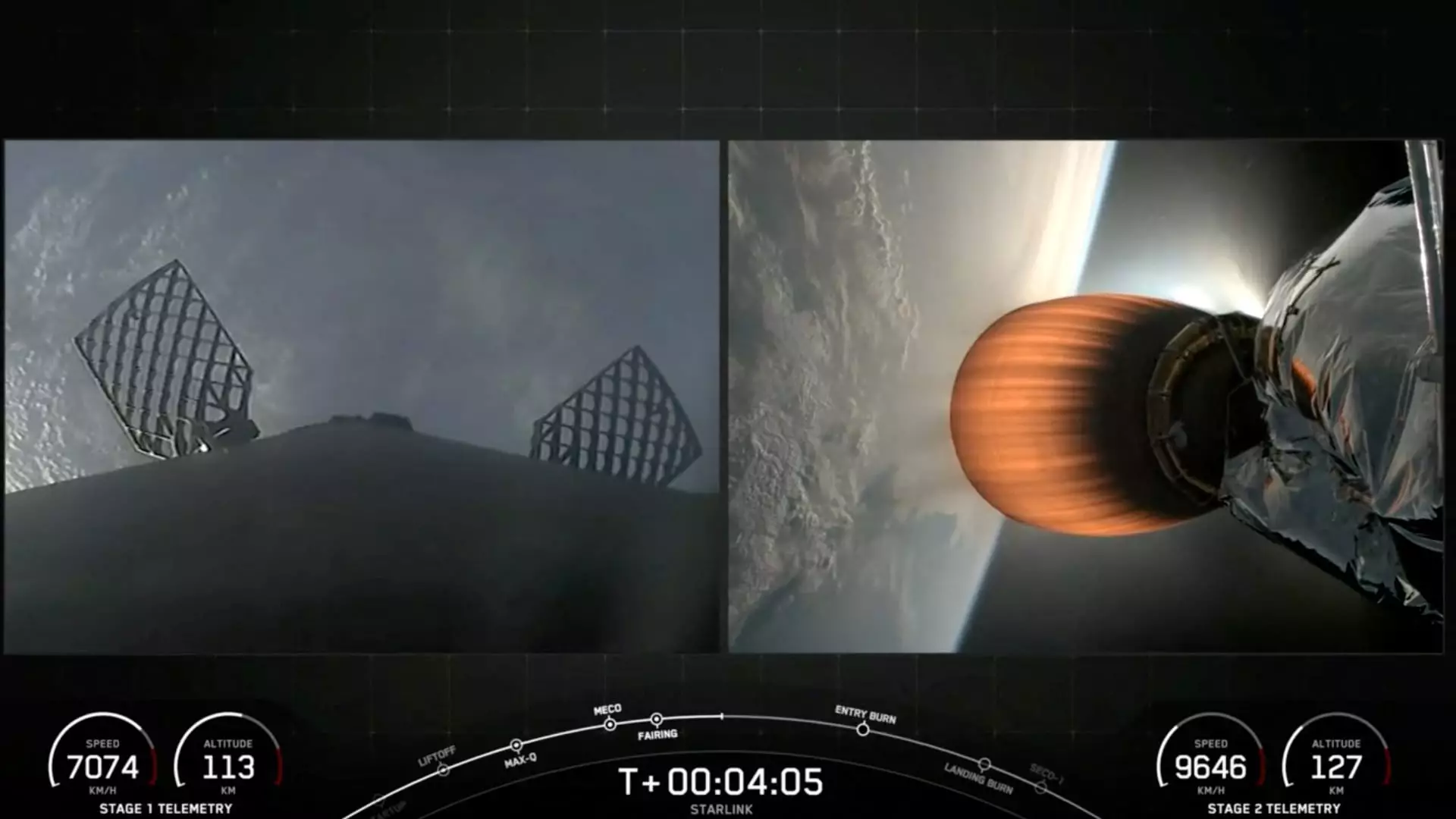SpaceX’s Falcon 9 rocket is currently grounded following an incident that underscores the unpredictable risks inherent in space transportation. During the mission identified as “Starlink Group 9-3,” which took place at California’s Vandenberg Space Force Base, the initial launch went smoothly, successfully deploying 20 satellites intended for low Earth orbit (LEO). However, complications arose when the rocket’s upper stage failed to reignite its engine, leading to what SpaceX termed a rapid unscheduled disassembly (RUD). This incident marks a rare misfire for the Falcon 9, a vehicle that has become synonymous with reliability in space travel.
SpaceX CEO Elon Musk indicated that the failure occurred post-initial stage performance where the booster operated as designed. However, the inability of the upper stage to restart its engine has raised significant alarm bells. Musk’s announcement about a leak of liquid oxygen and subsequent engine failure paints a concerning picture of an underlying vulnerability that could affect future missions.
The incident has mandated a thorough investigation led by the Federal Aviation Administration (FAA), which has confirmed that they will be scrutinizing every step of SpaceX’s internal review. Regulatory approval is essential before any further launches can proceed, effectively stalling scheduled missions, including crewed spaceflights that were on the docket. This raises questions not only about immediate mission timelines but also about the broader regulatory environment surrounding commercial spaceflight.
The fact that the FAA will need to sign off on SpaceX’s report reinforces the role of oversight bodies in ensuring safe and reliable space operations. The outcome of this investigation could lead to changes in operational protocols, affecting how SpaceX plans future launches and their approach to risk management.
Historically, the Falcon 9 has enjoyed a remarkable track record, with more than 300 consecutive successful launches since its last major inflight failure in 2015. This incident disrupts an impressive streak and brings into question the robustness of the systems implemented in the second stage of the rocket. The fact that SpaceX has achieved over 350 missions, with a substantial number of successful landings and booster reusability, has established the Falcon 9 as a leading workhorse for space endeavors.
However, the triumphs of the Falcon 9 could be overshadowed by this singular incident if it leads to prolonged scrutiny and additional delays. While SpaceX continues to innovate at a rapid pace, even a single failure can have ripple effects throughout the industry, impacting timelines and investor confidence.
Despite the complications, SpaceX successfully deployed the Starlink satellites, albeit in a suboptimal orbit. The potential for recovery of these satellites was quickly negated by the “enormously high-drag environment” posed by their lower-than-intended placement. Although SpaceX has reassured the public that the satellites do not pose safety risks, the implications are significant.
The Starlink initiative aims to provide global internet coverage through a massive constellation of satellites, and failures such as this one have the potential to hinder the ambitious plans of SpaceX. It remains to be seen how the company plans to address the challenges posed by this incident, both in terms of immediate operations and its long-term vision for global internet access.
The grounding of the Falcon 9 following the recent flight failure serves as a critical reminder of the inherent risks of space exploration. As SpaceX navigates the complexities of the investigation and regulatory scrutiny, the focus will inevitably shift towards how this impacts their ambitious launch schedule and operational strategies. The company has demonstrated resilience and adaptability in the past; however, this incident may serve as a pivotal moment that shapes its journey ahead. As we await further insights and decisions, the industry will be closely monitoring the impact of this setback on both SpaceX and the broader landscape of commercial spaceflight.


Leave a Reply